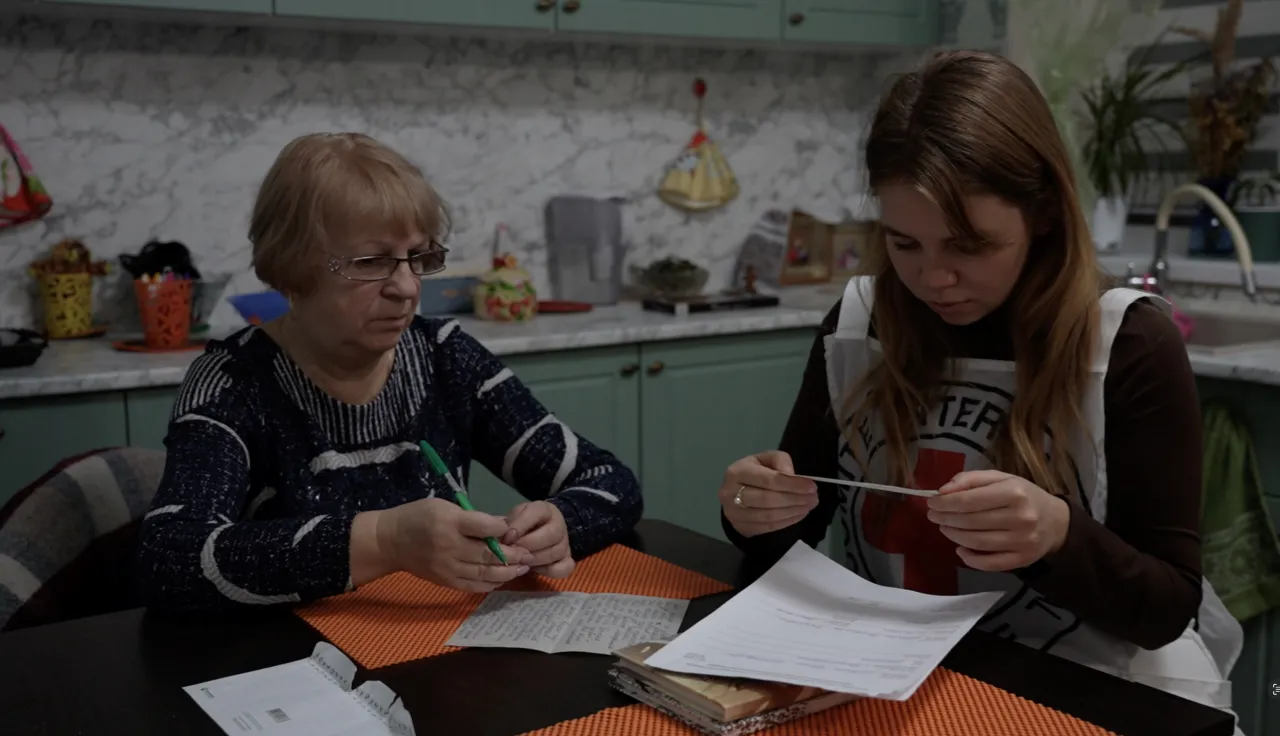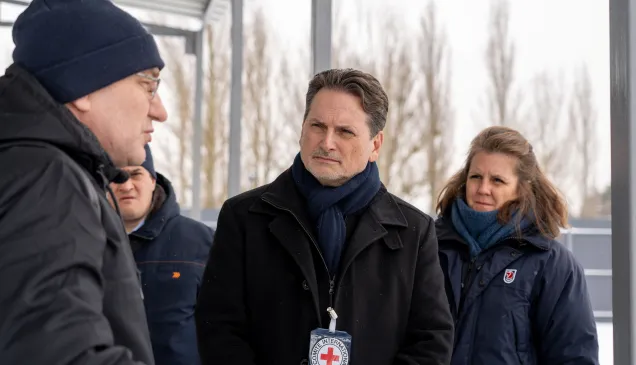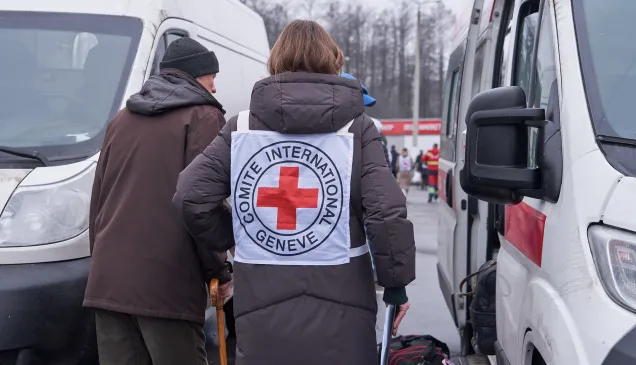Russia-Ukraine International Armed Conflict: The value of neutrality for humanitarian work

Neutral, independent and impartial humanitarian action in armed conflict is a fundamental part of our identity. When we act as a neutral intermediary, it means that we work with the parties to the conflict to facilitate some of the most sensitive and complex humanitarian activities that may take place during armed conflict.
This may involve working with parties to the conflict to bring their fallen soldiers back home, helping family members reunite with their loved ones through cross-border passages, or facilitating repatriation operations for civilians.
Safe cross-border passages:
In our role as a neutral intermediary and following agreements between the parties, the ICRC facilitated the safe cross-border passage of more than 270 vulnerable adults from the territory controlled by one party to the conflict to that controlled by the other in 2024. The ICRC also helped several dozen children reunite with family members in Russia and in Ukraine.
Accounting for those in enemy hands:
Acting as a neutral intermediary between the parties to the conflict, the ICRC’s Central Tracing Agency Bureau collects, centralizes, safeguards and transmits information from one side to the other, on military personnel and civilians who have fallen in the hands of the enemy. This helps families learn the fate and whereabouts of their loved ones, who they have been separated from, have gone missing, and/or who have fallen in the hands of the adversary.
As of the end of January 2025, the ICRC has more than 46,200 cases of people still missing in relation to the international armed conflict. The majority of these cases relates to combatants. More than 12,000 families have been informed of the fate or whereabouts of a missing loved one. We have been able to exchange 11,500 personal messages directly between PoWs and their families.
Additionally, the CTA Bureau coordinates with ICRC delegations in Russia and Ukraine and the wider network of Red Cross and Red Crescent national societies to help families looking for their missing relatives.
The dead/forensics:
The ultimate goal of the ICRC’s forensics work is to help prevent people from going missing and to provide answers to families, so they know the fate of their loved ones. In this conflict, our role as a neutral observer is to monitor the process of handover and repatriation of deceased servicemen between the two sides, and share our expertise with the authorities.
Parties to the conflict must ensure that the deceased are treated with dignity. The dead must be handled respectfully and their remains must be properly managed. The remains of unknown individuals must be identified. International humanitarian law also requires searching for, collecting, and evacuating the dead, to help ensure that no one is unaccounted for.
Operational update:
The human costs of the conflict have been profound, with families torn apart and lives lost. We seek to work as close to communities as possible, on both sides of the frontline, in Ukraine and Russia. As we enter the fourth year since the escalation of armed conflict, we support the basic needs of communities, aiming to alleviate suffering where we can.
We are not alone in this effort. 60 Red Cross and Red Crescent Societies globally have also been responding to the needs of people in Ukraine and in countries across the region.
The ICRC delegation in Ukraine:
- 2,700,000+ people have access, or improved access to essential services (water, wastewater, heating and electricity) through the support that the ICRC provided to utility service providers.
- 21 hospitals received regular donations of medical equipment and medicines to treat the influx of patients, including those from areas close to the frontline
- 88,111 people received food parcels, either directly from the ICRC, in partnership with the Ukrainian Red Cross Society (URCS) or in social institutions.
The ICRC Moscow delegation in 2024:
Working in partnership with the Russian Red Cross:
- More than 14,500 vulnerable people in Russia benefitted from cash assistance.
- 4,218 children from grades 1-4 received school kits and clothes vouchers.
- In response to the recent escalation of hostilities in Kursk, 25,000 vulnerable people received pharmacy vouchers. On top of that, 31,000 vulnerable people also received pre-paid bank cards.
The ICRC in Luhansk and Donetsk in 2024:
Working jointly with local operational partners:
- More than 39,500 conflict-affected people, including displaced individuals and families of the missing, received food parcels, while over 33,500 people received hygiene kits.
- Above 50 institutions — including local structures assisting vulnerable groups, temporary accommodation centers for displaced persons, and hospitals — received assistance to improve service quality.
- Approximately 122,000 people benefited from improved access to water. Three local water treatment facilities received more than 100 tons of construction materials and operational maintenance support.



